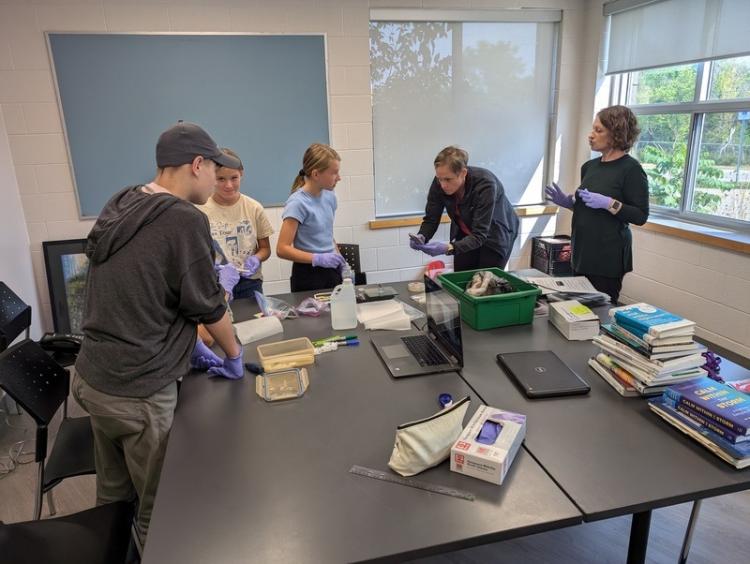The students' experiment explores whether soil bacteria can biodegrade compostable plastic in a microgravity environment. The implications of this research are far-reaching; the students theorized that if soil bacteria could break down compostable plastic in microgravity, then food waste could be collected and degraded and then provide soil nutrients for growing plants an exciting concept for future space travel.
Special thanks go to Alma Public School educators Keri Hons and Sherri Woodland, who have dedicated countless hours to guiding and mentoring these students, highlighting UGDSB's commitment to STEM education.

The launch of the student-designed microgravity experiment is scheduled for November 4 at 9:29 p.m. EST from NASA's Kennedy Space Center, Launch Complex 39A, the iconic pad used for the historic Apollo moon missions. The SpaceX CRS-31 mission will carry the experiment 250 miles above Earth, where astronauts on the ISS will oversee its operation. This incredible achievement not only demonstrates UGDSB's dedication to STEM learning but also provides a unique and powerful way for students to experience science in action.
Anyone interested in watching the launch can do so live or catch a replay using the link below: Watch the SSEP Mission 18 Launch on SpaceX CRS-31.
This experience marks an inspiring chapter through the partnership of the UGDSB's Specialist High Skills Major (SHSM) Program and the Take Tech Initiative, both of which are dedicated to advancing technology education.











